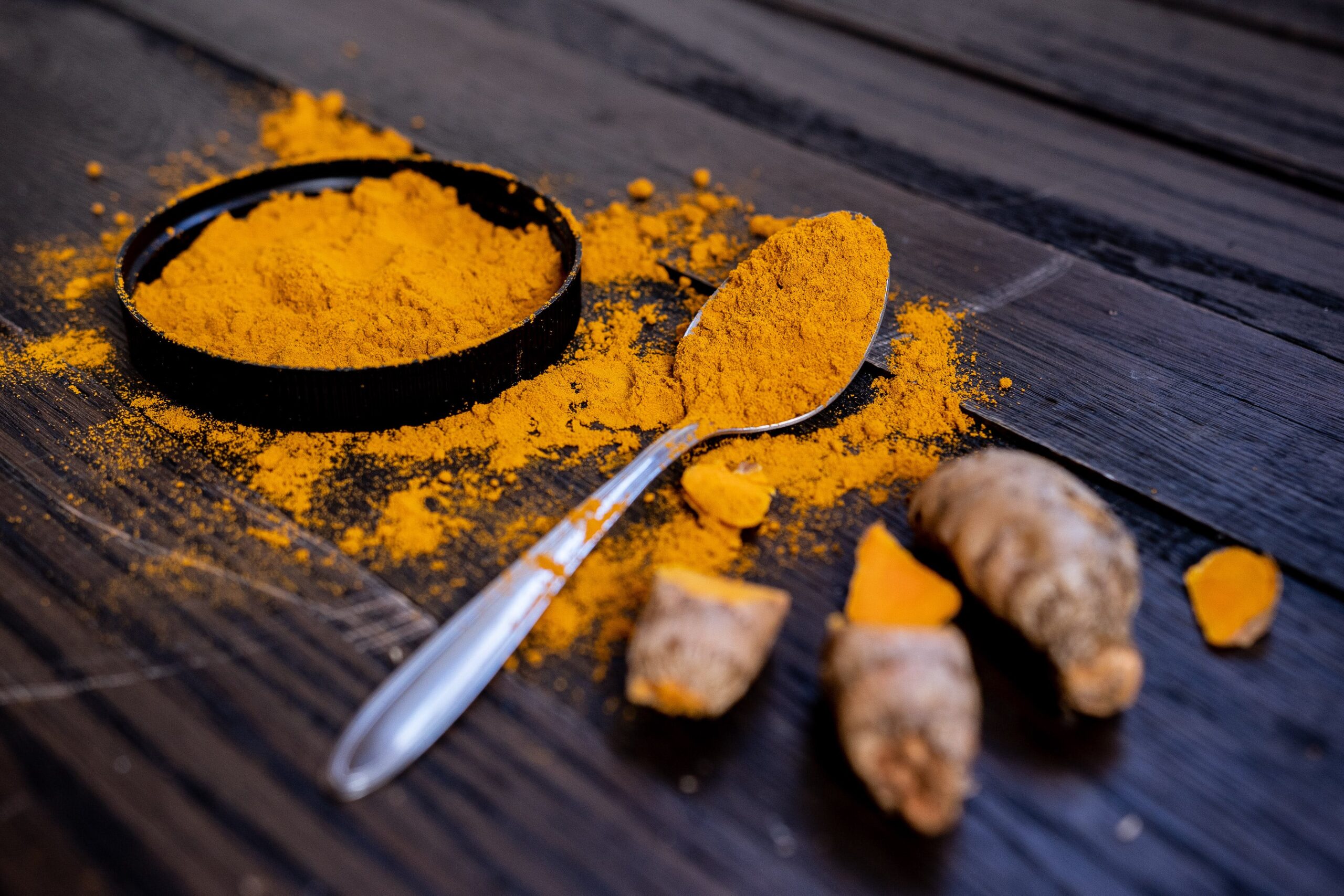The quest for effective and sustainable weight loss solutions has led many individuals to explore alternative remedies and dietary supplements. Among these, turmeric has gained popularity as a potential aid in weight management. While there is some scientific evidence supporting its role in weight loss, it’s crucial to understand the nuances and limitations of turmeric’s effectiveness in this context.
Turmeric and its Active Compound Curcumin
Turmeric is a yellow spice derived from the root of the Curcuma longa plant, commonly used in Indian cuisine and traditional medicine. Curcumin, one of its primary bioactive compounds, has garnered attention for its potential health benefits, including anti-inflammatory and antioxidant properties.
The Relationship Between Turmeric and Weight Loss
- Metabolism Boost: Some studies suggest that curcumin may enhance metabolism by increasing thermogenesis, which is the production of heat within the body. This effect can potentially lead to increased calorie expenditure and contribute to weight loss.
- Reduced Inflammation: Chronic inflammation has been linked to obesity and weight gain. Curcumin’s anti-inflammatory properties may help combat this issue, supporting a healthier weight.
- Fat Reduction: Research has indicated that curcumin might help reduce the accumulation of fat in adipose tissues by modulating fat metabolism and inhibiting the growth of fat cells.
- Appetite Suppression: Turmeric may also have appetite-suppressing effects, which could lead to reduced calorie intake and facilitate weight loss.
- Improved Insulin Sensitivity: Some studies suggest that curcumin can enhance insulin sensitivity, potentially helping individuals better regulate blood sugar levels and manage their weight.

Limitations and Considerations
While the potential benefits of turmeric and curcumin for weight loss are intriguing, it’s essential to keep certain limitations and considerations in mind:
- Limited Clinical Evidence: Much of the research on turmeric and weight loss is preliminary, and more large-scale, long-term clinical trials are needed to confirm these effects in humans.
- Individual Variations: The impact of turmeric on weight loss may vary from person to person, depending on factors such as genetics, diet, and lifestyle.
- Not a Magic Bullet: Turmeric should not be considered a miracle solution for weight loss. It can, at best, be a complementary component of a comprehensive weight management plan that includes a balanced diet and regular exercise.
- Quality Matters: The quality and bioavailability of turmeric supplements can vary widely. Ensure that you choose a reputable product with a high curcumin content for the best potential benefits.
- Safety Precautions: Turmeric and curcumin are generally safe when consumed in moderate amounts through food. However, high doses or supplements may cause side.
Benefits of Turmeric
- Anti-Inflammatory Properties: Curcumin has powerful anti-inflammatory effects and may help reduce inflammation in the body. Chronic inflammation is linked to many common diseases, including heart disease, cancer, and various degenerative conditions.
- Antioxidant Activity: Turmeric has antioxidant properties that help neutralize free radicals, which can damage cells and contribute to aging and various diseases.
- Joint Health: Due to its anti-inflammatory properties, turmeric may help alleviate symptoms of arthritis and joint pain. Some people find relief from conditions like osteoarthritis and rheumatoid arthritis.
- Heart Health: Curcumin may have a positive impact on heart health by improving the function of the endothelium (the lining of blood vessels), reducing inflammation, and having a positive effect on risk factors for heart disease.
- Brain Health: There is emerging research suggesting that curcumin may cross the blood-brain barrier and has potential benefits for brain health. It may help in the prevention or management of neurodegenerative diseases like Alzheimer’s.
- Cancer Prevention: Some studies suggest that turmeric and curcumin may have anti-cancer properties by inhibiting the growth of cancer cells and preventing the development of tumors. However, more research is needed in this area.
- Digestive Health: Turmeric may support digestive health by stimulating bile production and improving overall digestion. It is also used traditionally to help with indigestion and bloating.
- Weight Management: There is some evidence that turmeric may aid in weight management by helping to regulate metabolism and reduce inflammation, although more research is needed.
- Skin Health: Turmeric has been used topically for various skin conditions due to its anti-inflammatory and antioxidant properties. It may help with conditions like psoriasis and acne.
- Immune System Support: The immune-boosting properties of turmeric may help support overall immune system function, although more research is needed in this area.
Turmeric for Skin
Turmeric has been used for centuries in traditional medicine, including Ayurveda, for its potential benefits for the skin. The active compound in turmeric, curcumin, has anti-inflammatory, antioxidant, and antimicrobial properties that may contribute to various skin-related benefits. Here are some ways turmeric may be beneficial for the skin:
- Anti-Inflammatory Properties: Turmeric can help reduce inflammation, making it potentially useful for conditions like psoriasis and eczema. It may also assist in soothing irritated skin.
- Acne Treatment: Turmeric’s antibacterial and anti-inflammatory properties may be helpful in treating acne. It can be applied topically to reduce redness and inflammation associated with acne breakouts.
- Wound Healing: Turmeric has been traditionally used to aid in wound healing. Its antimicrobial properties may help prevent infections in minor cuts and wounds.
- Hyperpigmentation: Some people use turmeric to address hyperpigmentation and uneven skin tone. It may help lighten dark spots and reduce the appearance of sun damage.
- Anti-Aging: The antioxidant properties of turmeric may help combat oxidative stress and free radical damage, which are associated with aging. This may contribute to a reduction in the appearance of fine lines and wrinkles.
- Skin Brightening: Turmeric is sometimes used to achieve a brighter complexion. Its exfoliating and antioxidant properties may contribute to a more radiant and healthy-looking skin tone.
Here are a few ways you can incorporate turmeric into your skincare routine:
- Turmeric Face Mask: Mix turmeric powder with ingredients like yogurt, honey, or milk to create a face mask. Apply the mixture to your face, leave it on for about 10-15 minutes, and then rinse off.
- Turmeric and Honey Spot Treatment: Mix a small amount of turmeric powder with honey to create a paste. Apply the paste to individual blemishes as a spot treatment.
- Turmeric and Coconut Oil Scrub: Combine turmeric with coconut oil and a natural exfoliant like sugar or rice flour to create a gentle scrub. Use it to exfoliate your skin, promoting a smoother complexion.
It’s important to note that turmeric can stain clothing and temporarily tint the skin, especially in higher concentrations. Performing a patch test before applying turmeric to a larger area is advisable to check for any adverse reactions. If you have specific skin concerns or conditions, it’s recommended to consult with a dermatologist before incorporating turmeric into your skincare routine.
Use of Turmeric oil
Turmeric oil is derived from the turmeric plant (Curcuma longa) and is extracted from the rhizomes or roots of the plant. It contains various compounds, including aromatic turmerone, alpha-turmerone, and beta-turmerone. Turmeric oil has a warm, earthy, and slightly spicy aroma. Here are some common uses and benefits of turmeric oil:
- Aromatherapy: The aromatic properties of turmeric oil make it suitable for use in aromatherapy. Inhaling the scent of turmeric oil may help promote relaxation, reduce stress, and uplift the mood.
- Topical Application: Diluted turmeric oil can be applied topically to the skin. It is believed to have anti-inflammatory and antioxidant properties, making it potentially beneficial for skin health. However, it’s important to dilute the oil with a carrier oil (such as coconut oil or jojoba oil) before applying it to the skin to avoid irritation.
- Massage Oil: Turmeric oil can be blended with a carrier oil to create a massage oil. Massaging this oil onto the skin may help alleviate muscle soreness and reduce inflammation.
- Pain Relief: Due to its anti-inflammatory properties, turmeric oil may be used as part of a topical blend for pain relief. It can be applied to areas of the body experiencing pain or discomfort.
- Hair Care: Turmeric oil is sometimes used in hair care products or homemade hair treatments. It may help nourish the scalp, promote hair growth, and improve the overall health of the hair.
- Aid for Respiratory Health: Inhaling the vapor of turmeric oil may provide relief from respiratory issues such as congestion and sinusitis. Adding a few drops to a diffuser or inhaling steam with a few drops of turmeric oil may be beneficial.
- Natural Cleaning Agent: Turmeric oil’s antimicrobial properties make it a potential ingredient in natural cleaning solutions. It can be added to homemade cleaners to help disinfect surfaces.
- Aromatherapy Blends: Turmeric oil can be combined with other essential oils to create custom aromatherapy blends. For example, it may pair well with oils like lavender, peppermint, or citrus oils for a refreshing and uplifting aroma.
It’s essential to note that while turmeric oil has potential benefits, it should be used with caution. Always dilute it properly before applying it to the skin, as undiluted essential oils can cause irritation. Additionally, pregnant women, nursing mothers, and individuals with certain medical conditions should consult with a healthcare professional before using turmeric oil or any essential oil for therapeutic purposes.



